With 10 deaths and 659 dengue-positive cases in the city this year, the disease continues to be a bigger problem for Mumbai as compared to Ebola's worldwide scare.
Dengue vs Ebola in numbers
While 13,567 cases of Ebola have been reported across the world in 2014, official reports state 20,500 dengue cases occur in a year in India alone. Moreover, in a country that has 1.2 billion people, the under-reporting must be as much as 300 times, say experts. Researchers have estimated that at least 58 lakh people in India suffer from dengue every year.
Where is aedes mosquito breeding?
Believe it or not, it is a posh man's disease. According to BMC, 80-85% breeding sites of the aedes aegypti mosquito have been found inside people's houses, with over 50% breeding found in plush or middle class housing societies — the very societies and bungalows whose owners do not give access to civic officials to screen their property for breeding sites.
How are residents responsible for this?
Dengue mosquito breeds inside houses in stagnated water, around buckets, plants, air conditioners and other such places.
BMC has asked citizens to do their bit to drive out the disease. Additional municipal commissioner (health) Sanjay Deshmukh said: "Our staff is working overtime and on holidays too to reach out to more people, but we are facing high-handedness from plush housing societies. It takes two to three days to reach out to such societies, and, without their permission, we cannot enter their houses to check breeding sites."
So how's BMC dealing with it?
In a survey of 7 lakh housing societies carried out by 900 BMC workers, the breeding sites were discovered in more than 50% non-slum areas and included high-rises, commercial establishments, bungalows etc. "We are slapping notices and collecting fine from housing societies/commercial establishments where we spot aedes mosquito breeding sites," added Deshmukh.
So far, BMC has collected Rs23 lakh in fine and dragged 344 housing societies/commercial establishments to court. "We don't have the power to arrest people, but we are coming down heavily on defaulters," he said.
Officialspeak
Executive health officer, BMC, Dr Padmaja Keskar said, "One may lock their house for safety against theft while going on a holiday, but to lock mosquitoes out of house is another challenge. Monsoon receded over a month ago, but the aedes mosquito, which can survive for over a month, is still around."
What's the other thing people are doing wrong?
Doctors say self medication is another reason why Mumbai is seeing dengue complications. "Dengue is not a fatal disease, but the chance of complication goes up if the patient is self-medicating," said Dr Jalil Parker, physician at Lilavati hospital.
What do doctors say?
They believe the symptoms exhibited by maximum dengue patients fall between type DEN-2 and DEN-4. "There are four virus types that cause dengue. The present representation of cases shows that DEN-2 and DEN-4 strains are in circulation right now," said Dr Om Shrivastav, director of the department of infectious diseases at Jaslok Hospital. "There seems to be a change in vector transmission. Compared to last year, we are seeing more dengue cases in October. Intermittent rainfall, change in temperature, environment, and humidity are a few other factors for the rise in dengue cases."
Dean of Nair hospital Dr Ramesh Bharmal said, "We are sending blood samples to Defence Research & Development Organisation in Gwalior and National Institute of Virology in Pune for genotyping and understanding which gene strain is in circulation in the city. The samples will be sent from BMC's tertiary care hospitals."
![submenu-img]() This singer left Air Force, sang at churches, became superstar; later his father killed him after...
This singer left Air Force, sang at churches, became superstar; later his father killed him after...![submenu-img]() Indian-origin man says Apple CEO Tim Cook pushed him...
Indian-origin man says Apple CEO Tim Cook pushed him...![submenu-img]() Anil Ambani’s Rs 96500000000 Reliance deal still waiting for green signal? IRDAI nod awaited as deadline nears
Anil Ambani’s Rs 96500000000 Reliance deal still waiting for green signal? IRDAI nod awaited as deadline nears![submenu-img]() Most popular Indian song ever on Spotify has 50 crore streams; it's not Besharam Rang, Pehle Bhi Main, Oo Antava, Naina
Most popular Indian song ever on Spotify has 50 crore streams; it's not Besharam Rang, Pehle Bhi Main, Oo Antava, Naina![submenu-img]() Did Diljit Dosanjh cut his hair for Amar Singh Chamkila? Imtiaz Ali reveals ‘he managed to…’
Did Diljit Dosanjh cut his hair for Amar Singh Chamkila? Imtiaz Ali reveals ‘he managed to…’ ![submenu-img]() Meet Sudha Reddy, who wore Rs 83-crore outfit at Met Gala 2024; know what makes it so expensive
Meet Sudha Reddy, who wore Rs 83-crore outfit at Met Gala 2024; know what makes it so expensive![submenu-img]() 8 superfoods to prevent heart disease
8 superfoods to prevent heart disease![submenu-img]() 8 Bollywood star kids who did not benefit from nepotism, were flops
8 Bollywood star kids who did not benefit from nepotism, were flops![submenu-img]() 9 must-watch films based on parallel universes
9 must-watch films based on parallel universes![submenu-img]() 7 television actors who impressed fans in Sanjay Leela Bhansali's Heeramandi
7 television actors who impressed fans in Sanjay Leela Bhansali's Heeramandi![submenu-img]() DNA Verified: Is CAA an anti-Muslim law? Centre terms news report as 'misleading'
DNA Verified: Is CAA an anti-Muslim law? Centre terms news report as 'misleading'![submenu-img]() DNA Verified: Lok Sabha Elections 2024 to be held on April 19? Know truth behind viral message
DNA Verified: Lok Sabha Elections 2024 to be held on April 19? Know truth behind viral message![submenu-img]() DNA Verified: Modi govt giving students free laptops under 'One Student One Laptop' scheme? Know truth here
DNA Verified: Modi govt giving students free laptops under 'One Student One Laptop' scheme? Know truth here![submenu-img]() DNA Verified: Shah Rukh Khan denies reports of his role in release of India's naval officers from Qatar
DNA Verified: Shah Rukh Khan denies reports of his role in release of India's naval officers from Qatar![submenu-img]() DNA Verified: Is govt providing Rs 1.6 lakh benefit to girls under PM Ladli Laxmi Yojana? Know truth
DNA Verified: Is govt providing Rs 1.6 lakh benefit to girls under PM Ladli Laxmi Yojana? Know truth![submenu-img]() Alia Bhatt wears elegant saree made by 163 people over 1965 hours to Met Gala 2024, fans call her ‘princess Jasmine’
Alia Bhatt wears elegant saree made by 163 people over 1965 hours to Met Gala 2024, fans call her ‘princess Jasmine’![submenu-img]() Jr NTR-Lakshmi Pranathi's 13th wedding anniversary: Here's how strangers became soulmates
Jr NTR-Lakshmi Pranathi's 13th wedding anniversary: Here's how strangers became soulmates![submenu-img]() Streaming This Week: Heeramandi, Shaitaan, Manjummel Boys, latest OTT releases to binge-watch
Streaming This Week: Heeramandi, Shaitaan, Manjummel Boys, latest OTT releases to binge-watch![submenu-img]() Remember Ayesha Kapur? Michelle from Black, here's how actress, nutrition coach, entrepreneur looks after 19 years
Remember Ayesha Kapur? Michelle from Black, here's how actress, nutrition coach, entrepreneur looks after 19 years![submenu-img]() Remember Heyy Babyy's cute 'Angel' Juanna Sanghvi? 20 year-old looks unrecognisable now, fans say 'her comeback will...'
Remember Heyy Babyy's cute 'Angel' Juanna Sanghvi? 20 year-old looks unrecognisable now, fans say 'her comeback will...'![submenu-img]() DNA Explainer: Why Harvey Weinstein's rape conviction was overturned, will beleaguered Hollywood mogul get out of jail?
DNA Explainer: Why Harvey Weinstein's rape conviction was overturned, will beleaguered Hollywood mogul get out of jail?![submenu-img]() What is inheritance tax?
What is inheritance tax?![submenu-img]() DNA Explainer: What is cloud seeding which is blamed for wreaking havoc in Dubai?
DNA Explainer: What is cloud seeding which is blamed for wreaking havoc in Dubai?![submenu-img]() DNA Explainer: What is Israel's Arrow-3 defence system used to intercept Iran's missile attack?
DNA Explainer: What is Israel's Arrow-3 defence system used to intercept Iran's missile attack?![submenu-img]() DNA Explainer: How Iranian projectiles failed to breach iron-clad Israeli air defence
DNA Explainer: How Iranian projectiles failed to breach iron-clad Israeli air defence![submenu-img]() This singer left Air Force, sang at churches, became superstar; later his father killed him after...
This singer left Air Force, sang at churches, became superstar; later his father killed him after...![submenu-img]() Most popular Indian song ever on Spotify has 50 crore streams; it's not Besharam Rang, Pehle Bhi Main, Oo Antava, Naina
Most popular Indian song ever on Spotify has 50 crore streams; it's not Besharam Rang, Pehle Bhi Main, Oo Antava, Naina![submenu-img]() Did Diljit Dosanjh cut his hair for Amar Singh Chamkila? Imtiaz Ali reveals ‘he managed to…’
Did Diljit Dosanjh cut his hair for Amar Singh Chamkila? Imtiaz Ali reveals ‘he managed to…’ ![submenu-img]() Watch: Arti Singh gets grand welcome at husband Dipak's house with fairy lights and fireworks, video goes viral
Watch: Arti Singh gets grand welcome at husband Dipak's house with fairy lights and fireworks, video goes viral![submenu-img]() Meet actress, who belongs to family of superstars, quit films after 19 flops, no single hit in 9 years; is still worth…
Meet actress, who belongs to family of superstars, quit films after 19 flops, no single hit in 9 years; is still worth…![submenu-img]() IPL 2024: Suryakumar Yadav's century power MI to 7-wicket win over SRH
IPL 2024: Suryakumar Yadav's century power MI to 7-wicket win over SRH![submenu-img]() DC vs RR, IPL 2024: Predicted playing XI, live streaming details, weather and pitch report
DC vs RR, IPL 2024: Predicted playing XI, live streaming details, weather and pitch report![submenu-img]() Watch: Team India’s new jersey for T20 World Cup 2024 unveiled
Watch: Team India’s new jersey for T20 World Cup 2024 unveiled![submenu-img]() DC vs RR IPL 2024 Dream11 prediction: Fantasy cricket tips for Delhi Capitals vs Rajasthan Royals
DC vs RR IPL 2024 Dream11 prediction: Fantasy cricket tips for Delhi Capitals vs Rajasthan Royals![submenu-img]() IPL 2024: Kolkata Knight Riders take top spot after 98 runs win over Lucknow Super Giants
IPL 2024: Kolkata Knight Riders take top spot after 98 runs win over Lucknow Super Giants![submenu-img]() Indian-origin man says Apple CEO Tim Cook pushed him...
Indian-origin man says Apple CEO Tim Cook pushed him...![submenu-img]() Meet man whose salary was only Rs 83 but his net worth grew by Rs 7010577000000 in 2023, he is Mukesh Ambani's...
Meet man whose salary was only Rs 83 but his net worth grew by Rs 7010577000000 in 2023, he is Mukesh Ambani's...![submenu-img]() Job applicant offers to pay Rs 40000 to Bengaluru startup founder, here's what happened next
Job applicant offers to pay Rs 40000 to Bengaluru startup founder, here's what happened next![submenu-img]() Viral video: Family fearlessly conducts puja with live black cobra, internet reacts
Viral video: Family fearlessly conducts puja with live black cobra, internet reacts![submenu-img]() Woman demands Rs 50 lakh after receiving chicken instead of paneer
Woman demands Rs 50 lakh after receiving chicken instead of paneer


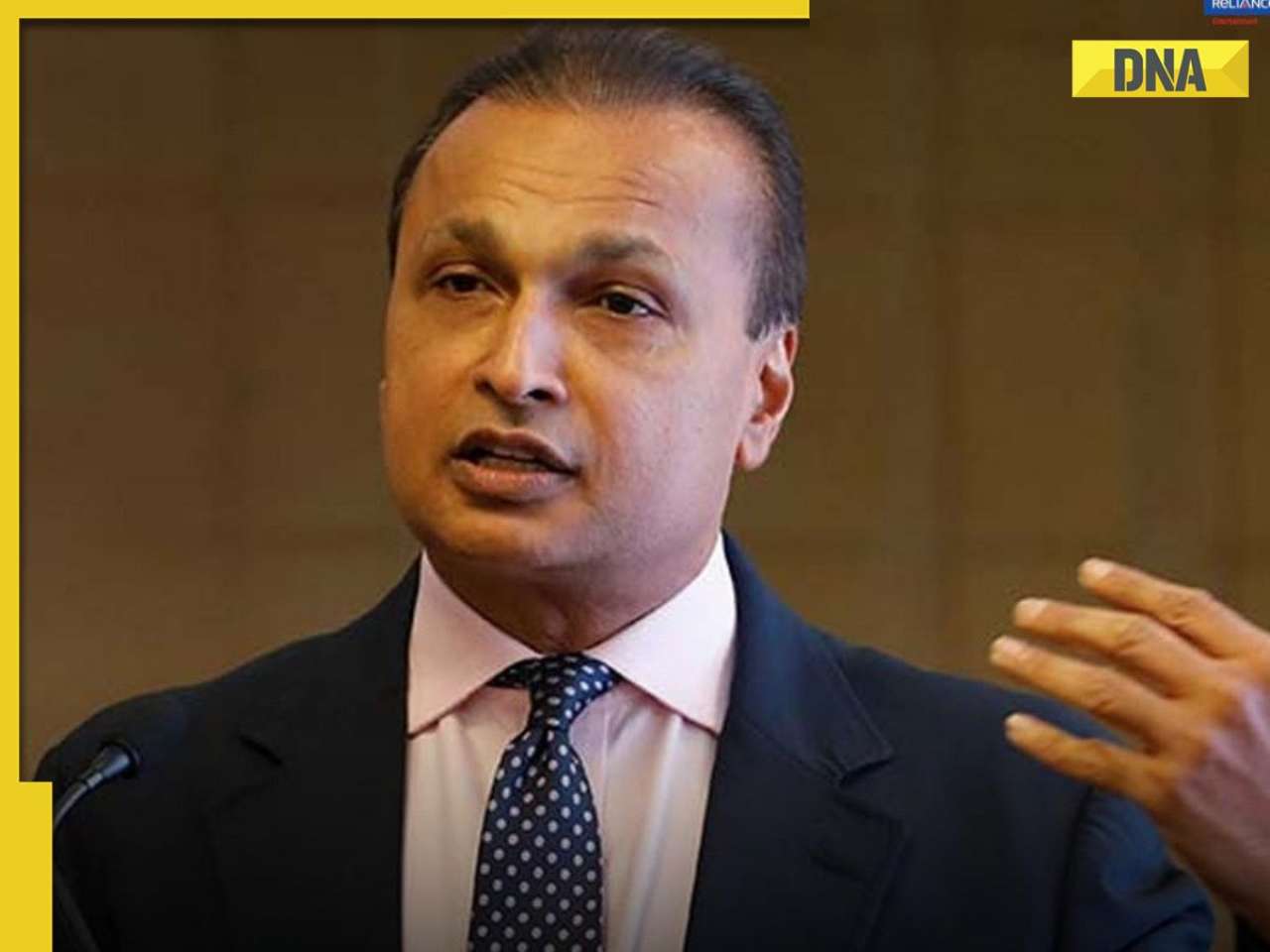

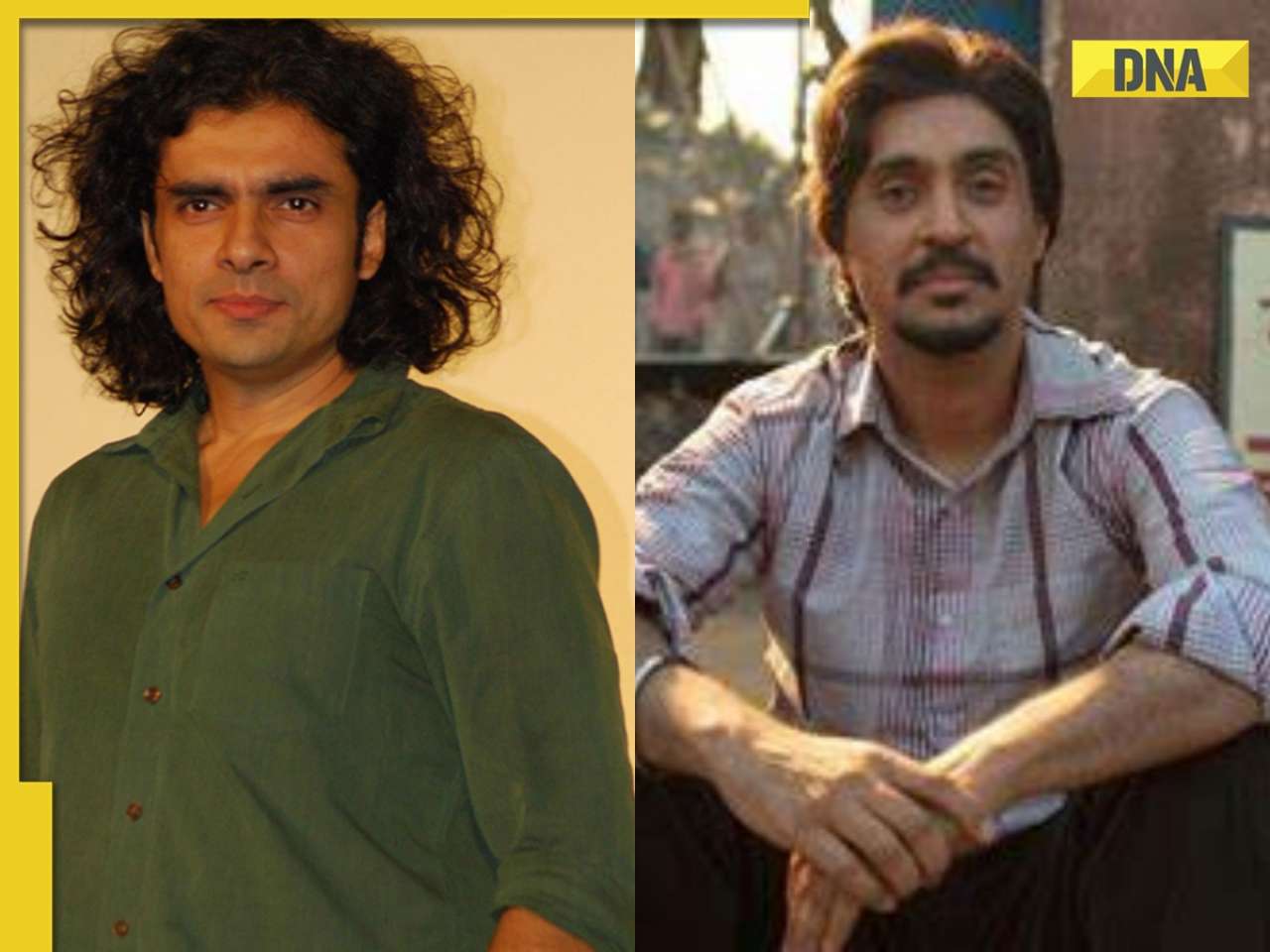























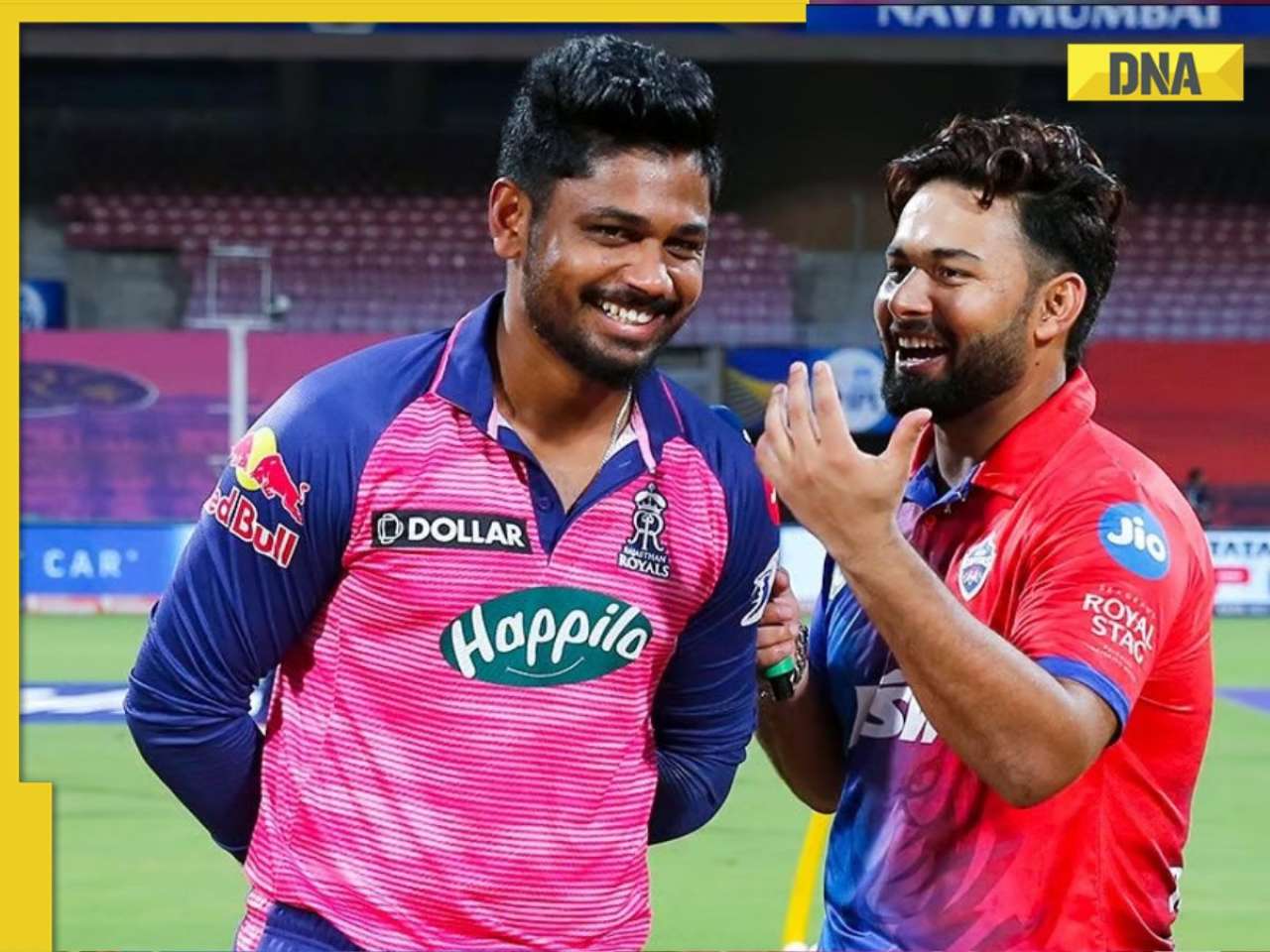
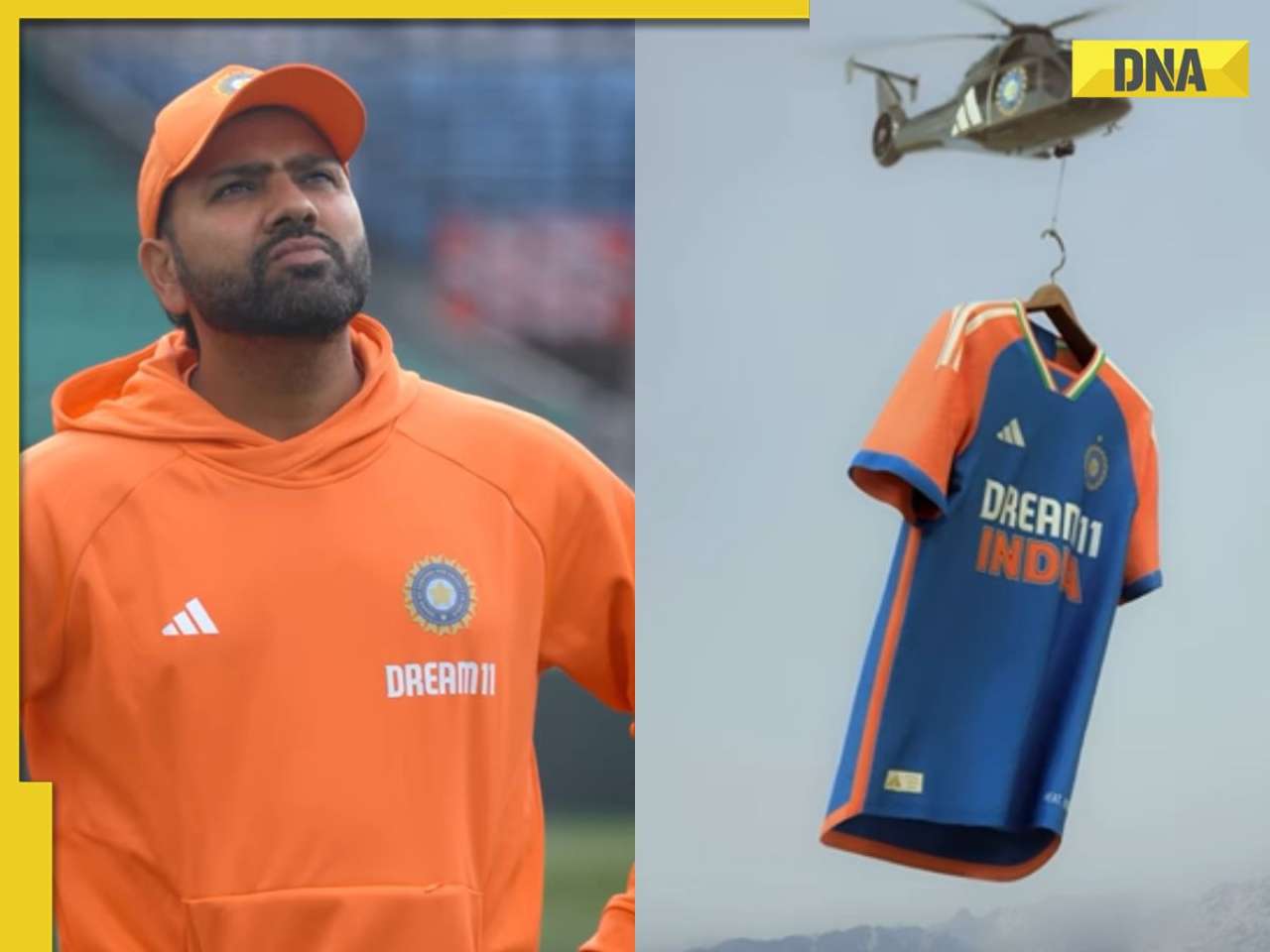
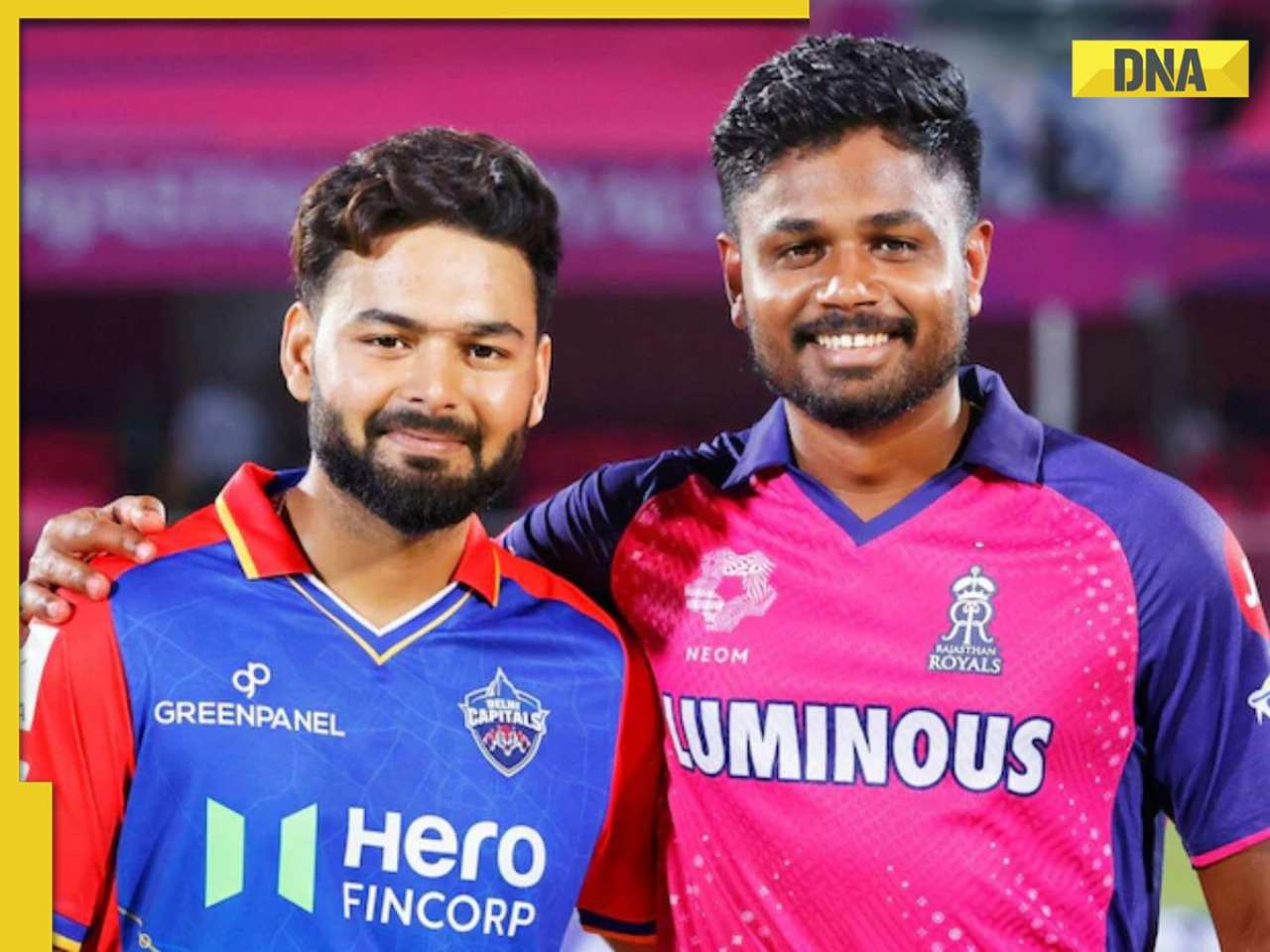






)
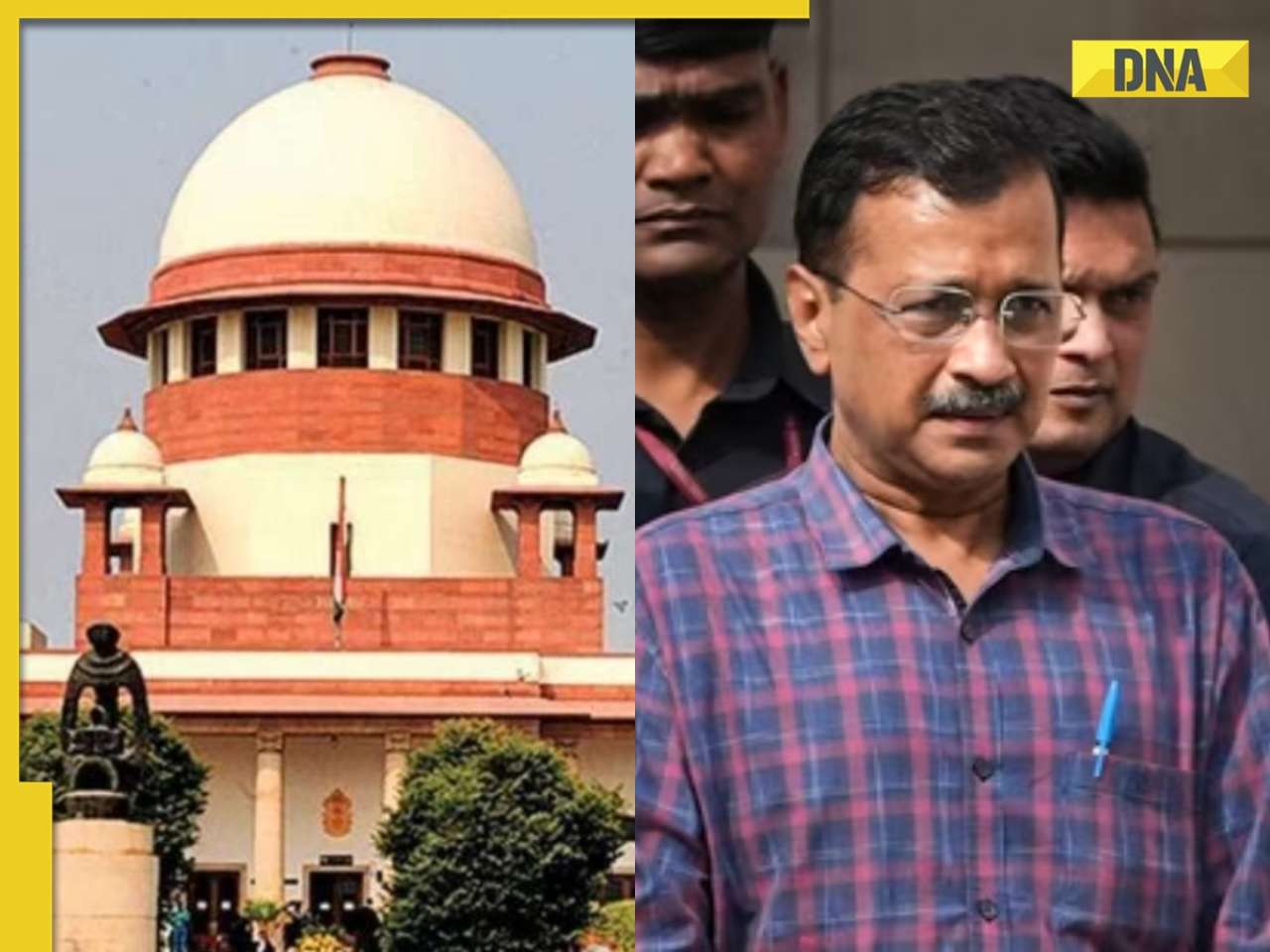
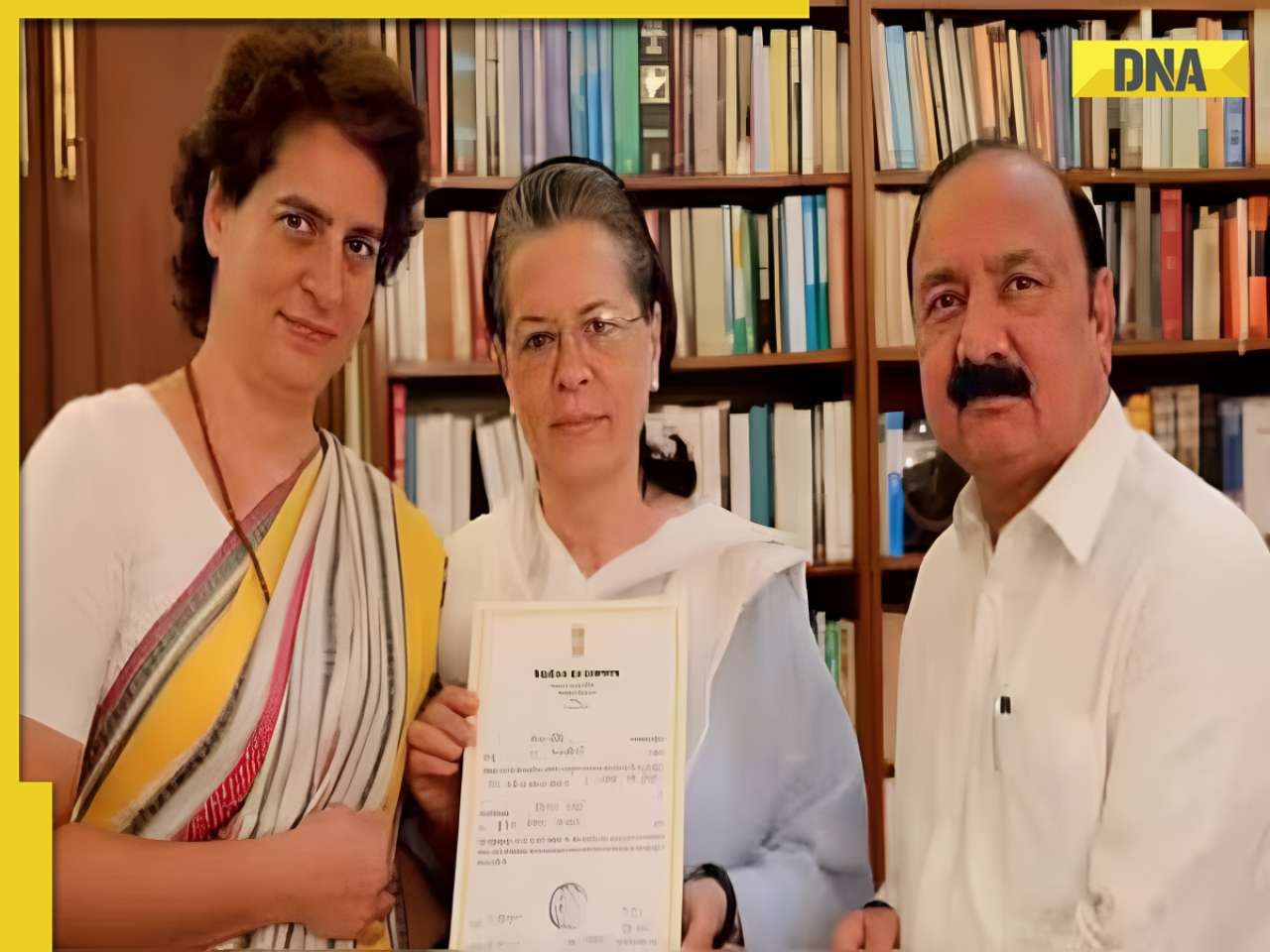
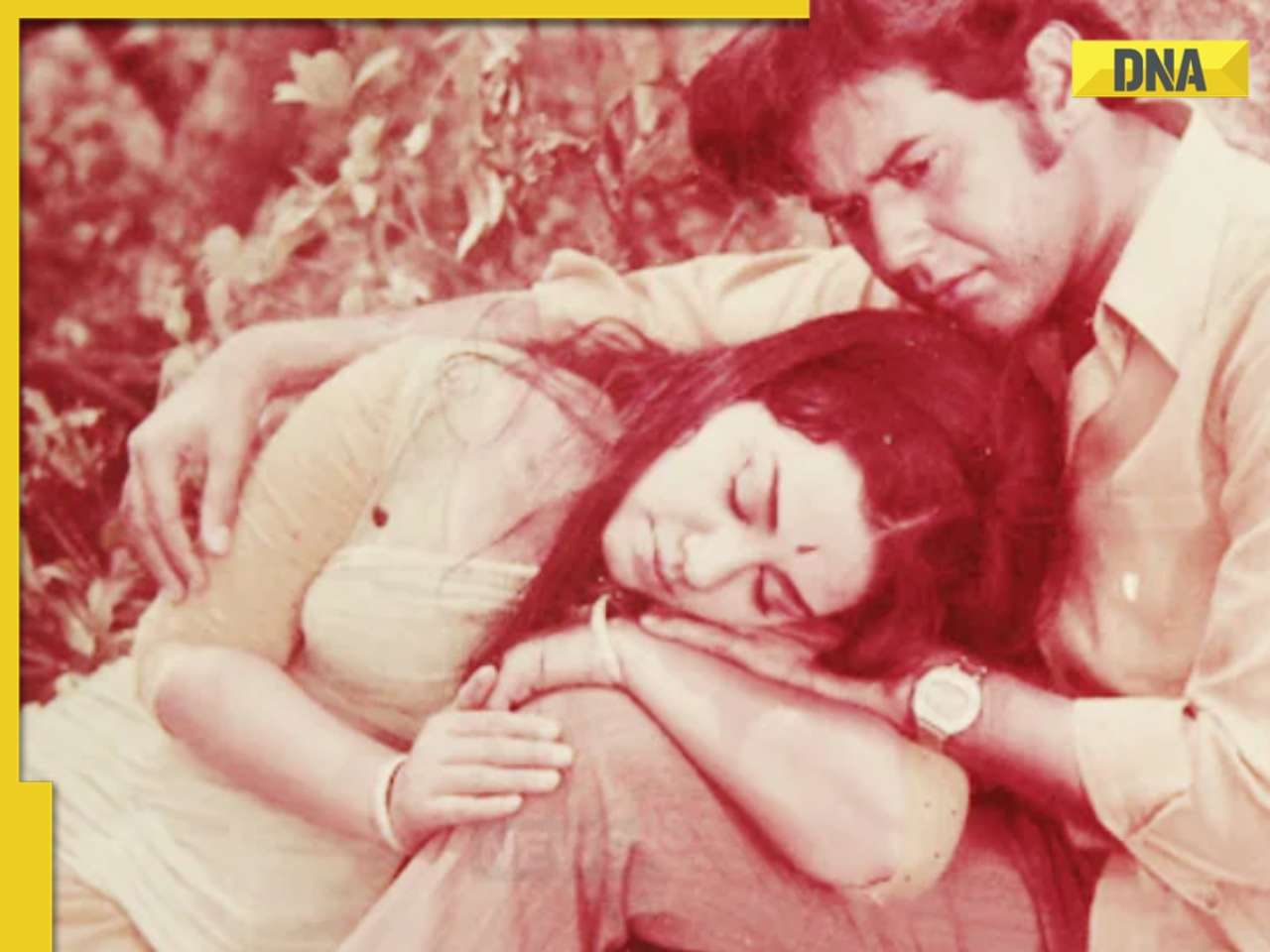






)
)
)
)
)
)